Confederate Truths: Documents of the Confederate & Neo-Confederate Tradition from 1787 to the Present.
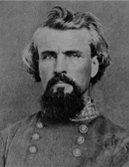

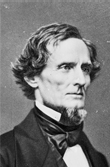
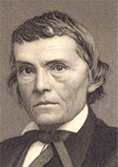


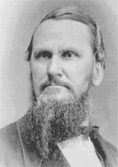
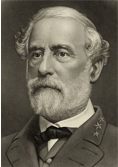
South Carolina Asks That Non-Slaveholding States Make Abolitionist Societies Illegal, Dec. 16, 1835
South Carolina Asks Non-Slaveholding States to Make Abolitionist Societies Illegal, Dec. 16, 1835
From Acts and Resolutions of South Carolina, Dec. 1835, 26-28, from "State Documents on Federal Relations: The States and the United States, No. V. Slavery and the Constitution, 1789-1845," edited by Herman V. Ames, published by The Department of History of the University of Pennsylvania, 1906.
From this resolution you can see that South Carolina has little interest in the states' rights of non-slaveholding states.
From the Acts and Resolutions of South Carolina:
The present condition of the slave question in the states of this confederacy, presents one of the most extraordinary spectacles which, your committee will venture to assert, has ever challanged the notice of the civilized world. We see sovereign states united by a common league, in about one-half of which states the institution of slavery not only exists, but its legal existence is solemnly recognized and guaranteed by their compact of union. Yet in the face of this compact, and the clear and distinct admission that the non-slaveholding states have not the slightest right, either constitutionally or otherwise, to interfere with this institution, the most incendiary associations are tolerated or permitted to exist within their limits, the object and ends of which not only strike at the prosperity and happiness of eleven states in the confederacy, but at their very social existence.
Painful as it may be, it is impossible to disguise the fact, that this is a condition of things which cannot, in the long run, be permitted to exist. Every wise instinct of self-preservation forbids it. Let it be admitted, that the three millions of free white inhabitants in the slave-holding states are amply competent to hold in secure and pacific subjection the two millions of slaves, which, by the inscrutable dispensations of Providence, have been placed under our dominion. Let it be admitted, that, by reason of an efficient police and judicious internal legislation, we may render abortive the designs of the fanatic and incendiary within our own limits, and that the torrent of pamphlets and tracts which the abolition presses of the north are pouring forth with an inexhaustible copiousness, is arrested the moment it reaches our frontier. Are we to wait until our enemies have built up, by the grossest misrepresentations and falsehoods, a body of public opinion against us, which it would be almost impossible to resist, without separating ourselves from the social system of the rest of the civilized world? Or are we to sit down content, because from our own vigilance and courage the torch of the incendiary and the dagger of the midnight assassin may never be applied? This is impossible. No people can live in a state of perpetual excitement and apprehension, although real danger may be long deferred. Such a condition of the public mind is destructive of all social happiness, and consequently must prove essentially injurious to the prosperity of a community that has the weakness to suffer under a perpetual panic. This would be true, if the causes of this excitement proceeded from the external hostility of a foreign nation. But how infinitely interesting and momentous the consideration becomes, when they flow from the acts and doings of citizens of states, with whom we are not only in amity, but to whom we are bound by the strongest bonds of common union, which was framed to promote the happiness, peace, security, and protection of all.
We have, therefore, a claim on the governments of the non-slaveholding states, not only moral and social, but of indispensible constitutional obligation, that this nuisance shall be abated. They not only owe it to us, but they owe it to themselves, to that union, at whose shrine they have so often offered up the highest pledges by which man can plight his temporal faith. * * *
Your committee are aware, that it has been said, that no legislation can be adapted to arrest the proceedings of the abolitionists by the non-slaveholding states, without violating the great principles of the liberty of the press. We consider that this objection rests on no just foundation. There is certainly some difference between the freedom of discussion, and the liberty to deluge a friendly and coterminous state with seditious and incendiary tracts, pamphlets and pictorial representations, calculated to excite a portion of its population to revolt, rapine and bloodshed. We would fain believe, that the northern liberty of the press, would never be construed into a liberty, to lay the south in ashes. Under a Iaw honestly passed to meet this crime against society, and treason against the Union, the whole circumstances of the case, and the quo animo of the offender might be left to a jury to determine like any other criminal issue, and if we are to believe in the condition of public opinion, as recently exhibited in most of the non-slaveholding states, we are far from thinking that such legislation would be a mere dead letter.
South Carolina will not anticipate the crisis, which must be presented by a refusal on the part of the non-slaveholding states, to accord to us the protection of such legislation, or such other means, as they may select for the suppression of the evils of which we complain, for she will not doubt the good faith and amity of her sister states. She desires to live in peace and harmony in this Union. In the assertion of her rights and in preferring her claims to be secure in the enjoyment of her property, under the compact, she desires to act in entire concert with those states, whose interests are identical with her own. She is, however, prepared to do her duty to herself and posterity, under all and every possible conjuncture of circumstances.
In conclusion, your committee, desirous of making a matter of record, both of our rights, and the assertion of the just expectation that they will be respected by those who are united with us in the bonds of a common union, beg leave to offer the following resolutions, for the adoption of both branches of the Legislature.
- Resolved, That the formation of the abolition societies, and the acts and doings of certain fanatics, calling themselves abolitionists, in the non-slaveholding states of this confederacy, are in direct violation of the obligations of the compact of union, dissocial, and incendiary in the extreme.
- Resolved, That no state having a just regard for her own peace and security can acquiesce in a state of things by which such conspiracies are engendered within the limits of a friendly state, united to her by the bonds of a common league of political association, without either surrendering or compromitting her most essential rights.
- Resolved, That the Legislature of South Carolina, having every confidence in the justice and friendship of the non-slaveholding states, announces to her co-states her confident expectation, and she earnestly requests that the governments of these states will promptly and effectually suppress all those associations within their respective limits, purporting to be abolition societies, and that they will make it highly penal to print, publish and distribute newspapers, pamphlets, tracts and pictorial representations calculated and having an obvious tendency to excite the slaves of the southern states to insurrection and revolt.
- Resolved, That, regarding the domestic slavery of the southern states as a subject exclusively within the control of each of the said states, we shall consider every interference, by any other state or the general government, as a direct and unlawful interference, to be resisted at once, and under every possible circumstance.
- Resolved, In order that a salutary negative may be put on the mischievous, and unfounded assumption of some of the abolitionists—the non-slaveholding states are requested to disclaim by legislative declaration, all right, either on the part of themselves or the government of the United States, to interfere in any manner with domestic slavery, either in the states, or in the territories where it exists.
- Resolved, That we should consider the abolition of slavery in the District of Columbia, as a violation of the rights of the citizens of that District, derived from the implied conditions on which that territory was ceded to the general government, and as an usurpation to be at once resisted as nothing more than the commencement of a scheme of much more extensive and flagrant injustice.
- Resolved, That the legislature of South Carolina, regards with decided approbation, the measures of security adopted by the Post Office Department of the United States, in relation to the transmission of incendiary tracts. But if this highly essential and protective policy, be counteracted by congress, and the United States mail becomes a vehicle for the transmission of the mischievous documents, with which it was recently freighted, we, in this contingency, expect that the Chief Magistrate of our state, will forthwith call the legislature together, that timely measures may be taken to prevent its traversing our territory.
[Resolutions of transmission.]
A very good book on the debates in congress over slavery in this period is "Arguing About Slavery: The Great Battle in the United States Congress," by William Lee Miller, published by Knopf. It gives you a good idea of the temper of the pro-slavery elements in Congress.